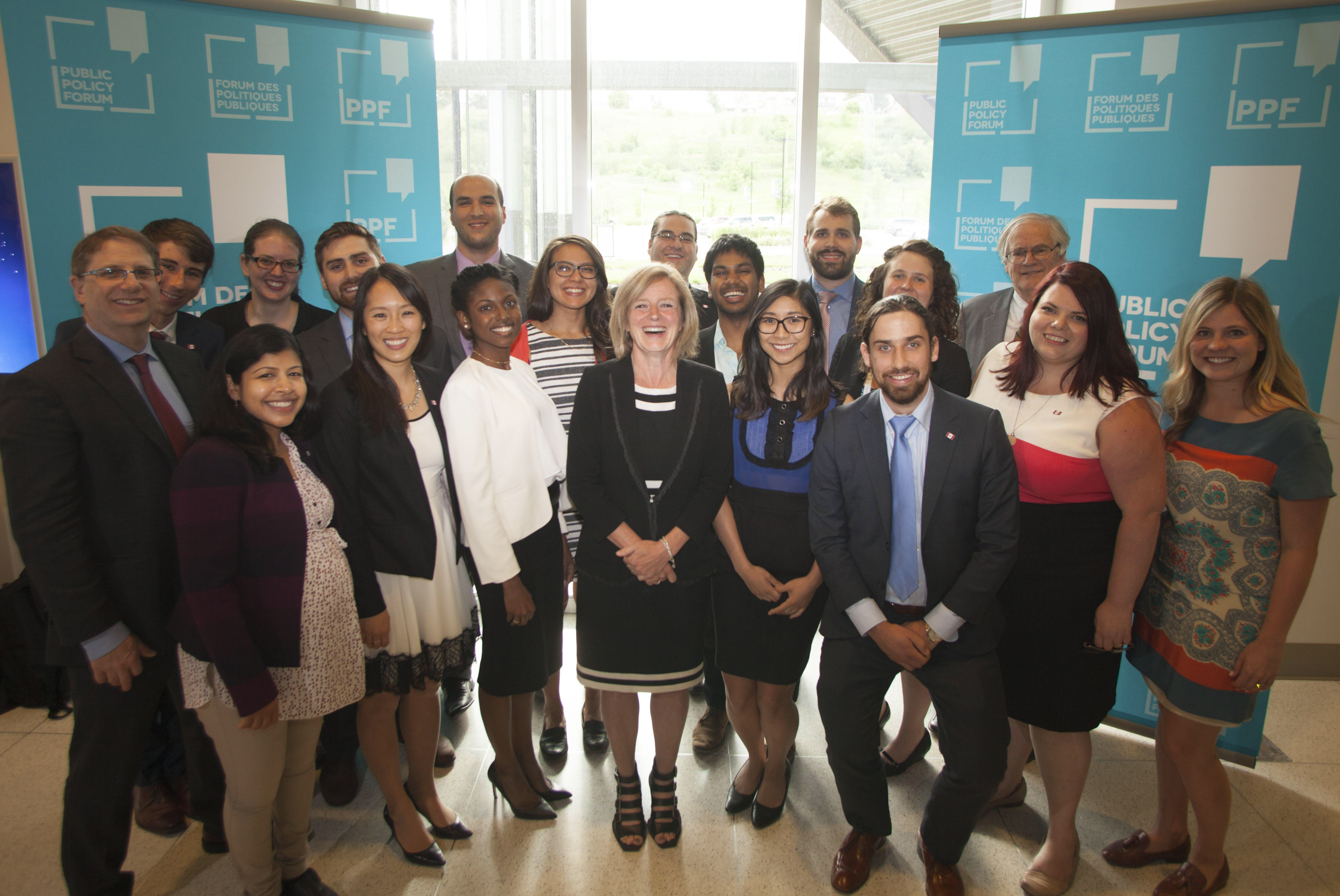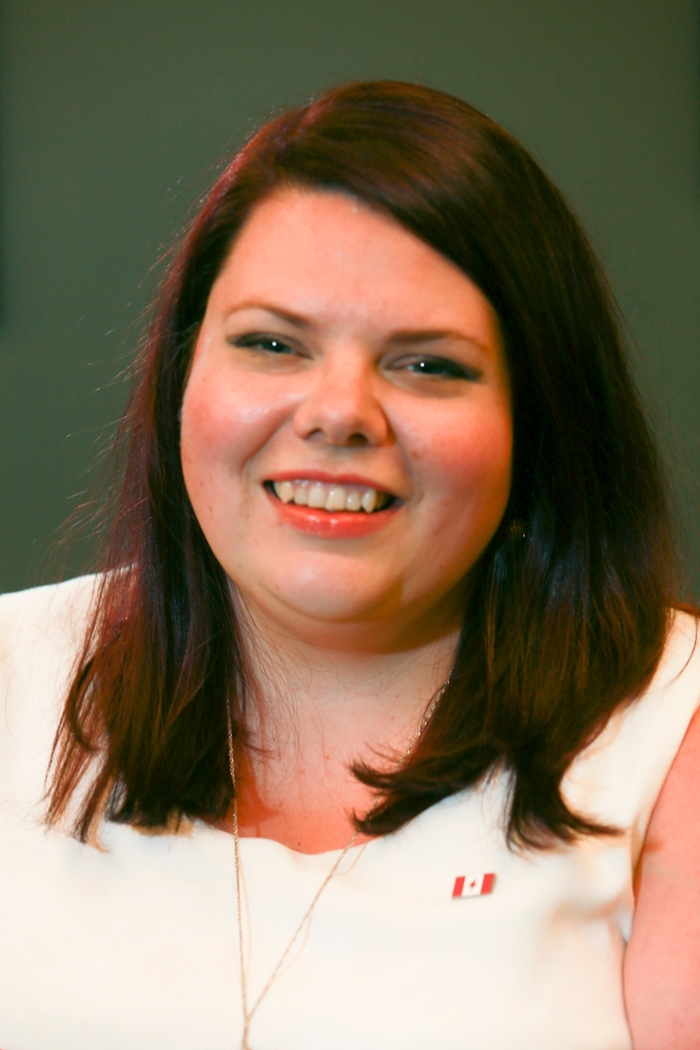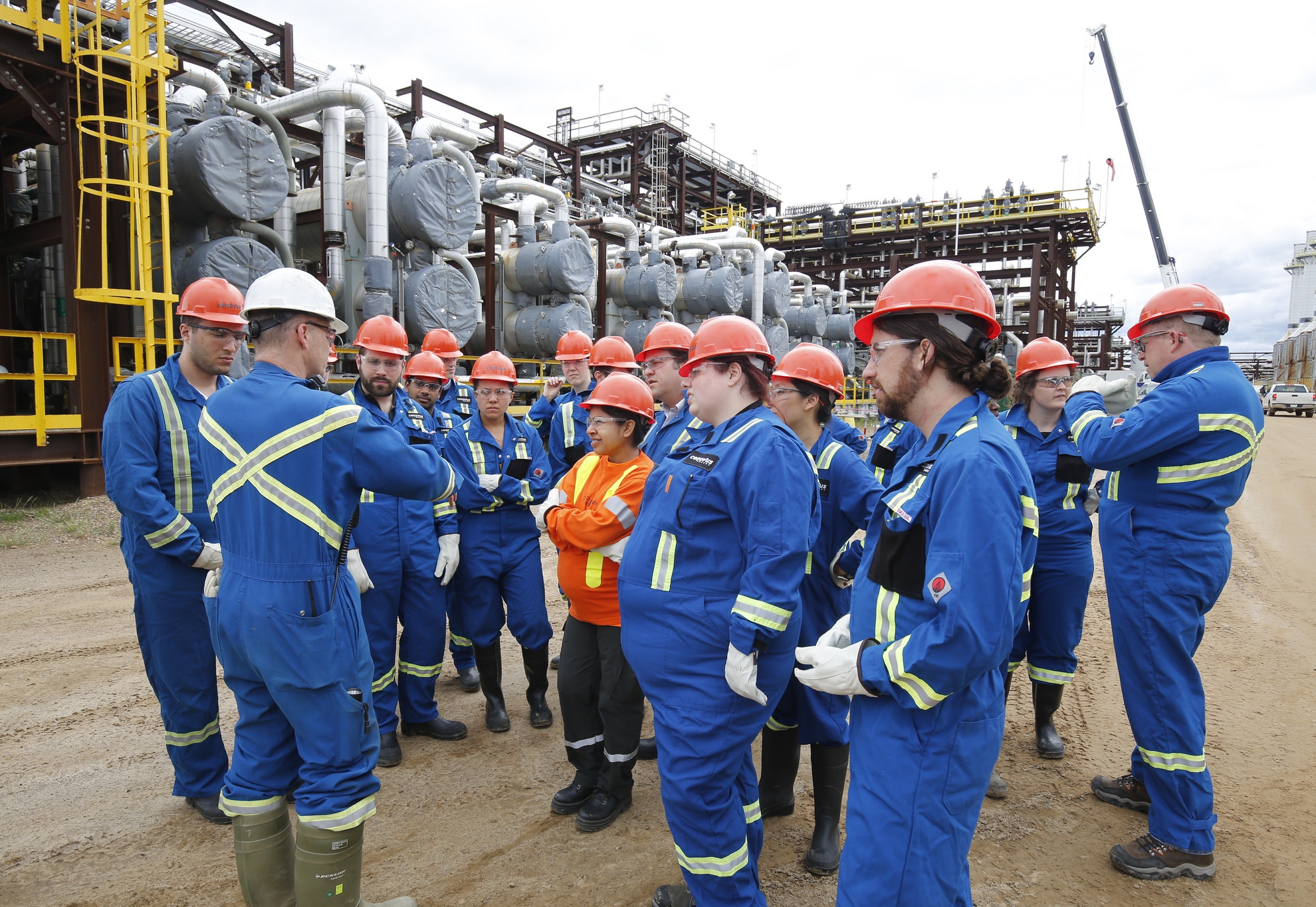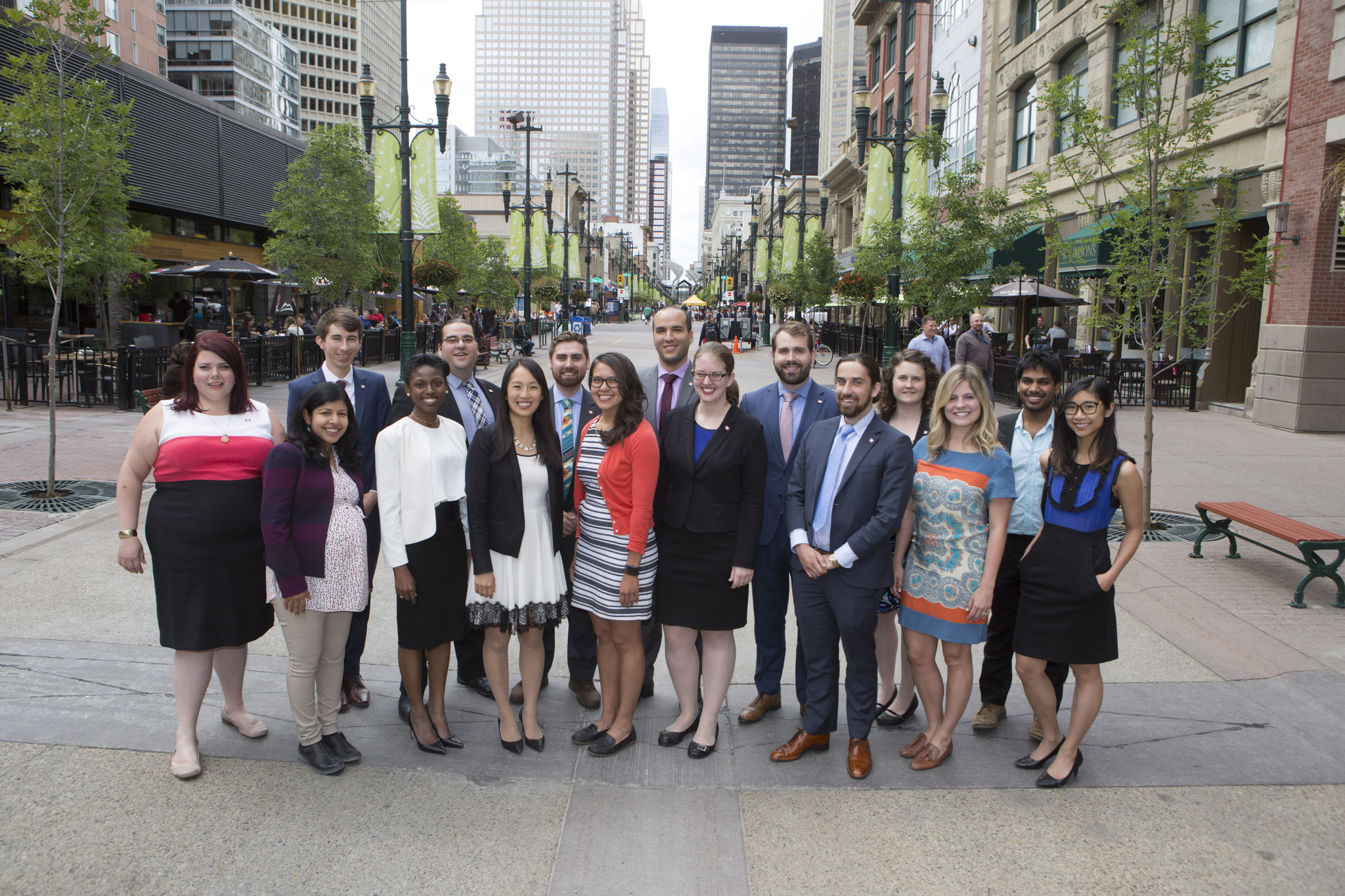
A clean future
Diane Adams hopes participating in a national fellowship to create clean energy strategies for Canada will help put an end to ‘energy poverty’ in Indigenous, rural and remote communities.
By Cat Bonner
A Métis student in the University of Saskatchewan School of Public Health, Adams is one of 16 young leaders from across Canada appointed to the Your Energy Future program.
Participants in the year-long program, delivered in partnership by the Public Policy Forum and leadership development fellowship Action Canada, will become change-makers in Canada’s energy agenda. They develop strategies to prepare Canadian people, communities and governments to successfully transition to a low-carbon, clean energy future.
Their recommendations will be presented to federal, provincial and territorial government policy-makers, leaders in the energy sector, and the Canadian public.
Travelling across Canada, learning about diverse energy sectors and visiting the communities most impacted by energy change, the group will meet with policy experts and community members, particularly young people, to gain their insights on energy, resources, and the implications of change.
“Our goal is to make sure the transition to cleaner energy is done in a way that not only reduces Canada’s carbon emissions, but supports quality community development across the country,” explained Adams.
A rare member of her generation to have experienced home life without electrical power, Adams has a deep respect for natural energy sources.
Growing up in a remote community outside Thunder Bay, Ont., that was what her family relied on.
“I still remember when our main energy source was chopping down trees and putting them in a fireplace,” she said. “Our life changed dramatically when we were hooked up to the electrical grid.”

While working in a remote northern Ontario town, witnessing the devastating effects of poor health and environment on local Indigenous peoples fuelled Adams’ commitment to improve community wellbeing, and pursue studies in public health.
She is now completing Master of Public Health thesis studies in Indigenous water security. Water and natural energy sources are highly sacred in Indigenous communities, and Adams understands how deeply energy-related issues affect Indigenous peoples.
Her ultimate goal from participating in Your Energy Future is to ensure Indigenous communities benefit from Canada’s transition to clean energy in a way they did not during the oil boom.
“Communities often did not see new jobs or wealth from the developments in oil,” Adams explained. “Many continue to lack reliable electrical power infrastructure, and use diesel fuel, which is expensive to transport, for everyday needs such as generating electricity or heating their homes.”
These deficits impact community livelihoods as they deplete their resources to transport the fuel they need, leaving nothing to spend on more long-term, dependable energy solutions.

Adams is keen for solutions. She sees the potential for new clean energy policy to create improved quality of life in Indigenous communities. She says this must include recognizing the significant detrimental effects of hydroelectricity, a popular “clean” energy source. Hydro dams can decimate natural resources surrounding the communities, and by extension the lives of the inhabitants.
Participating in Your Energy Future is a chance for Adams to share her experiences with influential people, including her fellow participants.
“It is very important for me to be able to bring forward the perspectives gained from working directly within Indigenous communities, and to make sure their views are represented,” she said.
Overall, Canada has a clear, but challenging mandate ahead: significantly cut carbon emissions and transition to clean, renewable energy sources to mitigate the detrimental effects of climate change.
Your Energy Future is looking to 2050, but Adams says it is hard to imagine how Canada will achieve the reduction in oil consumption experts say is needed over the next 30 years- in rural communities and cities.
“There are no easy answers, but there are many ways we could reduce the amount of oil we use in our urban communities - for example, driving electric cars,” she said. “We must look toward this inevitable future.”

